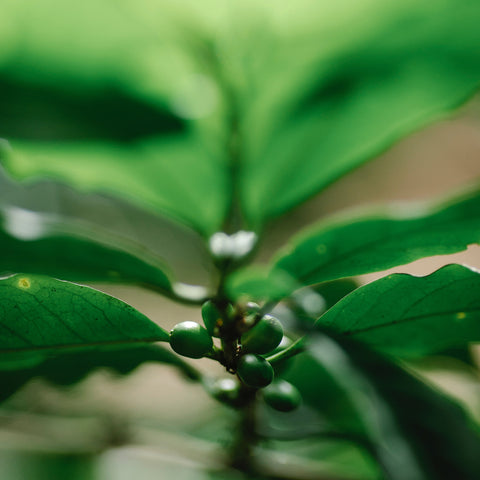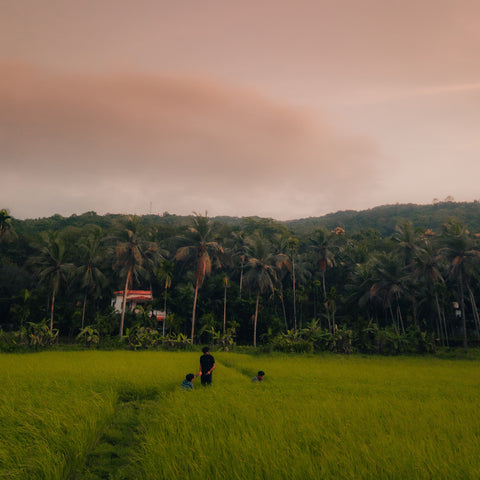Flavour notes, coffee processing, roasting - you’ve read about it all. You’ve probably also tried one of our specialty kaapis at some point (No? What are you waiting for?).
Let’s talk a step back now, shall we? Let’s admire the bigger picture.
By looking at the coffee-growing landscape of India, we can appreciate the origins of the spectacular kaapis that are produced in the country and exported worldwide.
There are three primary states in India where a majority of the coffee farms are located.
Karnataka
The southern state of Karnataka produces more than 70% of the coffee that is produced in India.
It’s almost always spoken of first when any conversation about Indian coffee comes up. After all, based on the legend, the saint Baba Budan first brought coffee beans from Mecca to Mysore, a city in Karnataka.
The famous Mysore nuggets are a speciality of Karnataka. They are among the superior coffees exported globally.

The state is home to some of the most fertile and high-altitude terrains, which are ideal for growing coffee. You may not know this, but the highest elevation in Karnataka is 1925m. Just think of the quality of the coffee beans that come out of this state.
Coorg is a district in Karnataka that is a prime location for coffee plantations. When you plan a trip to India, the coffee estates in Coorg must be a pit stop in your journey.
Apart from Coorg, Chikmagalur and Hassan are two other coffee-growing regions in Karnataka.
A typical coffee from Karnataka tends to have a sweeter taste, earthy aroma, and moderate acidity.
Kerala
Also known as God’s own country, Kerala comes next; over 20% of Indian coffee is grown here.
Much like Karnataka, several regions in Kerala possess optimum growing conditions for coffee. The state has abundant rainfall and vegetation that allows for the production of shade-grown coffees.
Something to take note of is that Kerala grows more robusta than arabica coffee, despite the fact that they too have high altitudes, with the highest elevation going up as much as 2695m.
Wayanad is a district located in the Western Ghats and produces most of the state’s coffee, i.e. 50,000-60,000 metric tonnes. These coffees have some hints of berries and a chocolate flavour profile.
You have probably heard of the Robusta Kaapi Royale coffee. It is one of the coffee beans that comes out of the Wayanad and Travancore regions of Kerala.

Tamil Nadu
Although Tamil Nadu’s share of coffee production accounts for roughly 5-6%, it is still of considerable value in the market because of the varieties that are grown here and the quality of the coffee beans.
The main varieties of coffee grown in Tamil Nadu include Cauvery, SIn.9, and S.795.
The state produces over 17,000 metric tonnes of coffee annually with the Anaimalai hills and Nilgiris being the top coffee-producing regions. The Anaimalai hills have an elevation of about 1400m above sea level.
Tamil Nadu has many coffee estates that are managed by tribal communities.
Kodaikanal, Pulneys, and Yercaud are other regions that are on the state’s coffee map.
It wouldn’t do to not name the other states where coffee is grown in India, even if that’s in smaller quantities.
There are some plantations in Andhra Pradesh, Orissa, and Assam too that function as the secondary arm of India’s coffee trade.
Look up the Daringbadi Coffee Garden in Orissa. It’s a hill station where there are arabica coffees grown.
Did you know that in 2021-22 coffee exports from India were valued at $1.04 billion? Isn’t that amazing? It shows just how much potential the country has to grow its coffee trade and rise even further up the ranks.
If you’ve been on the hunt for specialty South Indian filter kaapi, look no further. We source the best coffees from Chikmagalur to create some of our filter kaapis.
Check out the collection here and treat yourself to Indian coffee at its best.
Leave a comment: